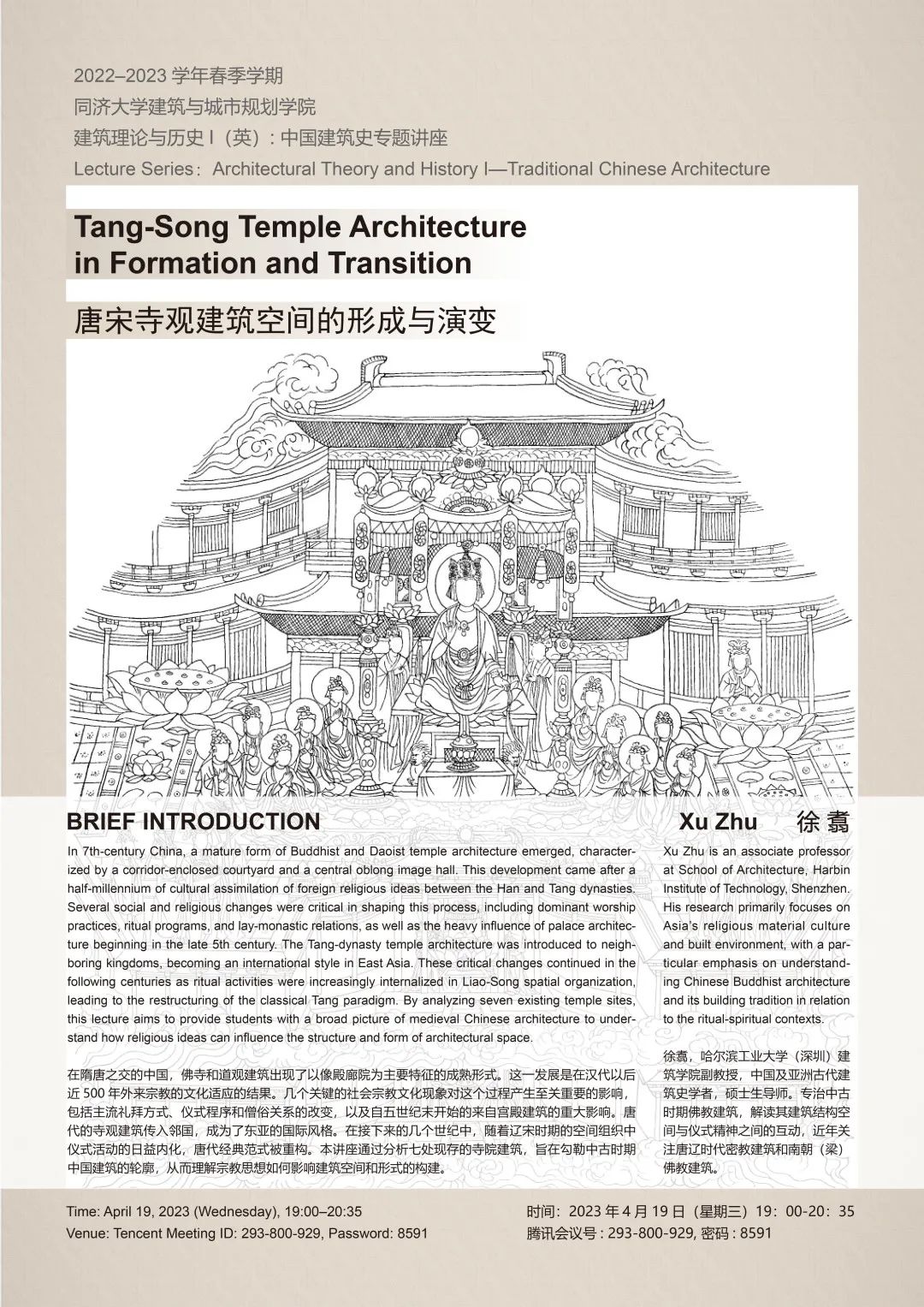
Lecture
Architectural Theory and History I:
Traditional Chinese Architecture
Tang-Song Temple Architecture
in Formation and Transition

Xu Zhu
Xu Zhu is an associate professor at School of Architecture, Harbin Institute of Technology, Shenzhen. His research primarily focuses on Asia’s religious material culture and built environment, with a particular emphasis on understanding Chinese Buddhist architecture and its building tradition in relation to the ritual-spiritual contexts.
In 7th-century China, a mature form of Buddhist and Daoist temple architecture emerged, characterized by a corridor-enclosed courtyard and a central oblong image hall. This development came after a half-millennium of cultural assimilation of foreign religious ideas between the Han and Tang dynasties. Several social and religious changes were critical in shaping this process, including dominant worship practices, ritual programs, and lay-monastic relations, as well as the heavy influence of palace architecture beginning in the late 5th century. The Tang-dynasty temple architecture was introduced to neighboring kingdoms, becoming an international style in East Asia. These critical changes continued in the following centuries as ritual activities were increasingly internalized in Liao-Song spatial organization, leading to the restructuring of the classical Tang paradigm. By analyzing seven existing temple sites, this lecture aims to provide students with a broad picture of medieval Chinese architecture to understand how religious ideas can influence the structure and form of architectural space.
April 19, 2023 (Wednesday), 19:00–20:35
Room B314
Tencent Meeting ID: 293-800-929
Password: 8591
Reference
[1] Xu, Zhu. 2016. Shanhua Monastery: Temple Architecture and Esoteric Buddhist Rituals in Medieval China. PhD, Architecture, the University of Hong Kong.
[2] Xu, Zhu. 2020. Buddhist Architectural Transformation in Medieval China, 300–700 CE: Emperor Wu’s Great Assemblies and the Rise of the Corridor-Enclosed, Multicloister Monastery Plan. Journal of the Society of Architectural Historians 79 (4):393-413.
[3] Xu, Zhu. 2022. “Hwangryongsa Reconsidered: A Korean Mirror to China’s Medieval Architectural Reform of Buddhist Ritual Space, 500-700.” SAH 2021 Annual International Conference, Pittsburgh, USA.
 ABOUT US
ABOUT US




